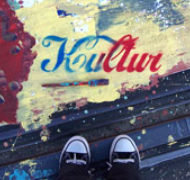Breath for the Bones: Paying Attention—A Way to See
Blog / Produced by The High Calling
We’ve just returned from the ocean and the rush of the surf is fresh in my ears. Usually—when the holiday is over—we jump right back into life with both feet. But this time, I still have one foot in the sand.
I loiter over the unpacking and move slow through the house. I stare out the window at the rising and setting of the sun—imagining light on water. Like a good book finished, I am reluctant to start a new story. These characters still live inside of me.
The slowing wants to linger, despite the hectic pace we keep. Luci Shaw describes this pull in our reading this week from Breath for the Bones: Art, Imagination, and Spirit: Reflections on Creativity and Faith.
My slowing down, stopping, being still, and listening allow me to hear the microcosm speak—the world of negligible, unnoticed things. We don’t need to be world travelers or theologians or philosophers or environmentalists to see and hear the messages of heaven in the earthly creation. My magnifying lens is my tool for careful scrutiny.
Art finds significance everywhere, Luci tells me and during the week of pause I do too. I wander the shore in the morning and watch the sky pull the sun out of the ocean. Her slow rise runs like watercolor down the beach and I walk on her cool fire. The long arm of the sea leaves behind treasure and I sift through her discards, marveling at the luminous colors and diverse shapes all cradled together in this sandy bed. Watery fingers lap over them, moving them beneath my feet, trailing through their sleep and leaving music in the wake—the tinkling of a memory. Is it the ghost of the song they sang when they moved about in her embrace below?
I see differently when I allow myself to slow. It’s a way of paying attention that life at full speed often steals.
The word attention is derived from the Latin ad-tendere—“to stretch toward.” Attending implies inhabiting. This is not a spectator sport. Paying attention cannot be done in passivity. It demands intentionality, choice, and awareness…Christian spirituality demands that we stop in our tracks to see what’s happening and to attend to it… This is the essence of the sacramental: paying attention, noticing, discovering that material things remind us of—and point us to—the things we cannot see but that have ultimate and eternal reality and value.
Things do tend to fall into a better line when I pay attention. Small moments become holy…I make room to hear the Still Small Voice. My pen has legs of its own and my paintbrush is happily engaged. But I cannot live on vacation. I cannot slow like this on most ordinary days. How to hold on to the holy?
I’m no apostle of prophet, but as a writer I take the command from Revelation 1 that the aging apostle John was told, “Don’t be afraid. Write what you see” seriously. God has been telling me that all my life. In order to write truly, I need to see clearly; I need the right glasses.
Creativity and faith—like a fire, Luci says—need tending to. Not only must we be in that state of active readiness that we discussed in chapter six, but there are other things one can do to cultivate these mysteries.
Reading, she says, is the best way for her to prime the pump. Luci refers to her books as this community of friends on my shelves. Exploring various works in one’s area of artistic interest helps produce growth in our own work. I once heard Lyle Lovett say that when he is struggling with writing a song, he listens to the work of other great songwriters.
Another path to artistic growth is affirming our loves through craft, Luci says. She speaks of how nature is at the center of her work—how her love for growing things permeates her art. For me, she says, my writing is a connection with the world, my response to the world around me.
Luci also recommends cultivating friendships with others who share a conviction of faith and a dedication to artistic process. I’ve found such a community here at The High Calling and I hope you have too.
One thing I have learned over the years is that there is no formula for creative growth. It seems that everyone has a different approach. How about you? How do you cultivate creativity ?
Join us next week for our final discussion on Breath for the Bones. We'll be wrapping up with chapters eleven and twelve. If you'd like to join the conversation today, leave us a comment or link up below with more thoughts at your blog:
Image by wandelwesen. Used with permission. Sourced via Flickr. Post by Laura J. Boggess.





